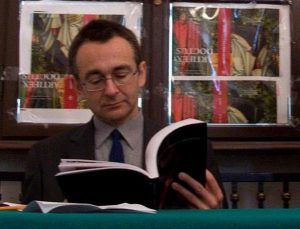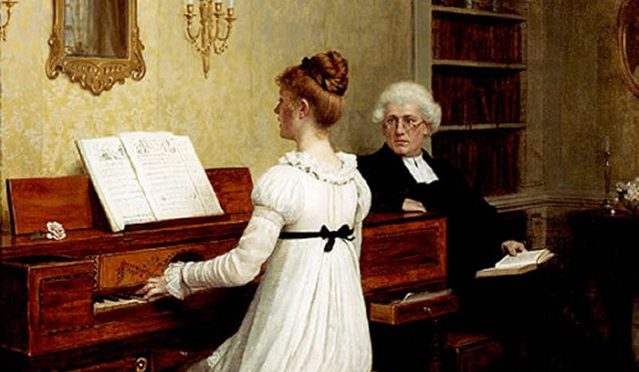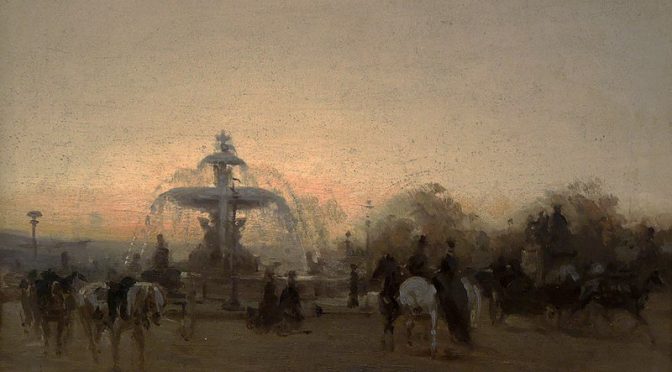Workshop
Organizers: Kristýna Hochmuth (ÚDU FF UK, NG) and Adéla Klinerová (ÚDU FF UK, EPHE, CEFRES)
Partners: CEFRES, ÚDU FF UK, ÚDU AV ČR, NG
When & Where: 26-27 June 2018, AV ČR, Národní 3, Prague 1
Languages: French and English
This workshop, organized by CEFRES, the Institute of Art History of the Czech Academy of Sciences (ÚDU AV ČR), the National Gallery in Prague (NG) and the Institute of Art History of the Faculty of Arts of the Charles University (ÚDU FF UK) is open to PhD students, post doctoral students and young researchers. Our discussions will be initiated by a keynote speech by professor Marek Zgórniak, Institute of Art History, Jagiellonian University, Kraków. A complementary program will be open to active participants and public.
The goal of the workshop is to look at French art history from the viewpoint of the cultural transfer theory. It will touch upon various aspects of the spreading of French culture and art (painting, sculpture, architecture, applied arts) but also the fields of museology and cultural heritage protection.
Call for papers.
Opening conference by Marek Zgórniak : “Artistic Exchanges with France During the XIXth Century : The Polish Case”

Marek Zgórniak is a art historian, professor at the Jagellone University of Krakow. The XIXth century architecture – in particular the neo-Renaissance architecture – is one of his main interests, as much as the pre-impressionist French art – his PhD thesis was about the Venitian designs in French painting. Marek Zgórniak worked later on the Polnish painter Jan Matejko, whose paintings were exhibited at the Paris Salon. He also worked on the reasons why gorillas kidnap women in French sculptor Emmanuel Frémiet art.
- Wokół neorenesansu w architekturze XIX wieku, Kraków 1987 (nouvelle édition: Kraków 2013).
- Autour du Salon de 1887. Matejko et les Français, in: L. Salomé (éd.), Jeanne d’Arc, les tableaux de l’histoire, Paris 2003, 65–79.
- Fremiet’s Gorillas: Why Do They Carry off Women?, Artibus et Historiae 27, no 54, 2006, 219–237.
- Polish students at the Académie Julian until 1919, RIHA Journal, August 2012, nepag.
Invited by the organisers to present the Polish case, Marek Zgórniak will attempt to give an overview of the developments in French-Polish artistic exchange from the late 18th till the early 20th centuries in the country partitioned between three neighbouring powers. The political situation of Polish lands, as well as complex and changing social and ethnic factors make the task difficult, and instead of one “case” one has to deal with cases of several (at least three) fairly distinct regions. The speaker will discuss in brief the state of research, which is patchy and does not always permit to draw conclusions about certain phenomena.
Program
Tuesday 26 June 2018, room 205 (2nd floor)
9h – 9h30 Registration of participants
9h30 – 10h Opening and introduction
10h – 11h
Keynote lecture by Marek Zgórniak (Jagiellonian University, Kraków)
Artistic Exchanges with France During the 19th Century: The Polish Case
Coffee break
11h30 – 13h30
I. Transmission of style, models, ideas
Chair: Richard Biegel (Charles University, Prague)
Karolina Stefanski (Technical University of Berlin)
Transformation of French Empire Style in Silver from Berlin, Warsaw and Vienna, 1797-1848
Emeline Houssard (Sorbonne University, Paris / Centre André Chastel, Paris)
Paris-Berlin-Vienne, nouveau regard sur les marchés couverts de quartier (1838-1884)
Adéla Klinerová (Charles University, Prague / École Pratique des Hautes Études, Paris / CEFRES)
La référence française dans les revues d’architecture du XIXe siècle : le cas des revues publiées par la Société des architectes et ingénieurs du Royaume de Bohême
Lunch break
15h – 18h
II. Experience of the Parisian milieu: Art education, salons, artists’ colonies
Chair: Michael Werner (CNRS / École des Hautes Études en sciences sociales, Paris)
Konrad Niemira (École normale supérieure, Paris / University of Warsaw)
Shopping in Paris? Michał Hieronim Radziwiłł and French Art Market 1788-1802
Kristýna Hochmuth (Charles University, Prague / National Gallery in Prague)
Couture ou Cogniet? La première vague d’artistes tchèques en France
Coffee break
Stéphanie Baumewerd (Technical university of Berlin)
« Steffeck et son école d’après le modèle parisien ». L’atelier de Carl Steffeck (1818-1890) comme exemple de la formation artistique transnationale au XIXe siècle
Stéphane Paccoud (Museum of Fine Arts, Lyon)
« L’école de Paul Delaroche ». Un modèle français pour une peinture d’histoire nationale en Europe centrale
Wednesday 27 June 2018, room 108 (1st floor)
9h – 11h
III. Network: Individual mediators
Chair: Taťána Petrasová (Czech Academy of Sciences)
Réka Krasznai (Eötvös Loránd University, Budapest / Hungarian National Gallery, Budapest)
Réseaux et médiateurs – de Gautier à Munkácsy – et leur rôle dans les stratégies d’émergence et de carrière des peintres hongrois à Paris
Kati Renner (Technical University of Dresden / Berlinische Galerie)
Bringing Paris to Florence. Otto Hettner (1875-1931) and the Dissemination of Modern Artistic Ideas around 1900
Barbara Vujanović (University of Zagreb / Museums of Ivan Meštrović – Meštrović Atelier, Zagreb)
Ivan Meštrović. Exemples de diplomatie culturelle entre Paris et Prague
Coffee break
11h30 – 13h
IV. Network: Transmission of savoir-faire
Chair: Taťána Petrasová (Czech Academy of Sciences)
Anežka Mikulcová (Charles University, Prague)
French “silhouette” versus Czech “shadow image”
Małgorzata Grąbczewska (University of Gdańsk / Royal Łazienki Museum, Warsaw)
La diffusion de la pensée et du savoir-faire photographique entre la France et la Pologne au XIXe siècle
13h Conclusion
15h
Guided visit of the National Gallery in Prague – Veletržní palace with Kristýna Hochmuth
Including part of the permanent collection as well as the temporary exhibition The End of the Golden Times. Gustav Klimt, Egon Schiele and the Viennese modernism.
Meeting point: Entrance hall of the museum, Dukelských hrdinů 47, Prague 7
18h – 19h30
Lecture by Michael Werner (CNRS-EHESS)
Music as a Universal Form of Art? Internationalization of Musical Life and Forming of National Identity in 19th Century Europe
Venue: French Institute in Prague, Štěpánská 35, Prague 1, 5th floor
Language: French with simultaneous translation in Czech
Abstract (FR)
The lecture elaborates on the transformations of European 19th century musical life, with special focus on concerts. Paradoxically, along the internationalisation of this musical life, due to the mobility of the musicians, the constitution of a repertoire, the rise of specific market and press, and the professionalization of musical trades, the interpretative patterns and reception phenomena grew increasingly national. One can even speak of the appropriation of music by national movements. The lecture will call forth a few analytical tools that allow to cast a light on such evolutions and to ground them in a histoire croisée of European cultures.




